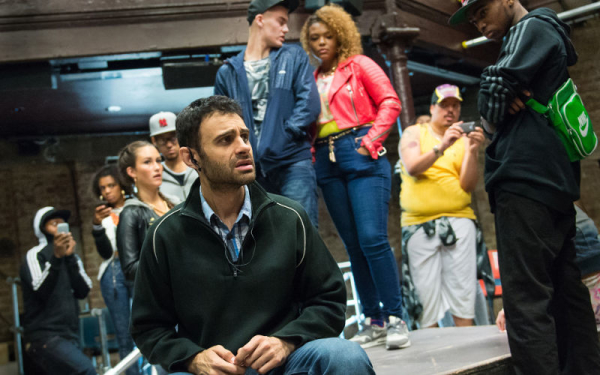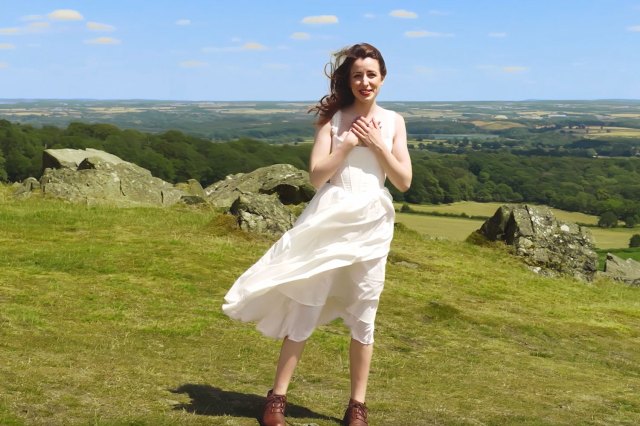Little Revolution (Almeida Theatre)
Alecky Blythe’s new verbatim play puts too much focus on the middle class response to the 2011 riots

Alecky Blythe has been using her pioneering verbatim theatre technique for over ten years now, during which time she has tackled a range of knotty and difficult subjects by simply walking into the middle of them with a dictaphone and relaying what she's told on stage.
With Little Revolution her subject is the 2011 riots, during which she spent time in the community of Hackney during the aftermath of the shooting of Mark Duggan. Her focus is predominantly on a support group established by two middle class do-gooders (played by Michael Shaeffer and Imogen Stubbs) with the intention of helping a local shopkeeper, Siva (Rez Kempton), whose business has been ransacked; there are similarities to the flower group at the heart of London Road.
What distinguishes Little Revolution from her previous work is that Blythe puts herself into the action. This has decidedly mixed results. Although it provides a very clear insight into her process, which students of verbatim technique will no doubt appreciate, I found it distracted from the issue she was attempting to understand. The narrative, perhaps unintentionally, becomes more about the theatremaker than the riots themselves.
Blythe is eager to send herself up, and heightens her nervous laughter and clipped accent for comic effect. It scores some laughs and skewers to some extent the self-interested middle class liberal concern that is also evident in the community group.
But the fault of the play – if you'll permit the analogy – is that she has chosen to focus on the generals in the château rather than the tommies in the trenches. And on that score it fails in documentary terms.
This being said, Joe Hill-Gibbins' atmospheric production effectively creates an air of mounting panic. Looters from an off-licence run in from the foyer brandishing six-packs (one of whom accosts Blythe for taking pictures); police encircle the auditorium; a large scaffold to create the in-the-round staging evokes a flavour of the destruction on the high street.
It's slickly executed, running at just 85 minutes straight through, and certain performances stand out – Lucian Msamati as a local barber who coins the expression that gives the play its title, and Ronni Ancona as a posh and somewhat patronising resident who claims an affinity with the kids on the estate.
But when all is said and done the play tells us far more about the middle class response to the riots than it does about the riots themselves. Blythe touches on the idea that the sharp juxtaposition of haves and and have nots in Hackney was a major cause of the trouble, but this is hardly a complete picture. Those hoping to learn more about the root causes of the chaos that engulfed our streets that week will leave disappointed.












